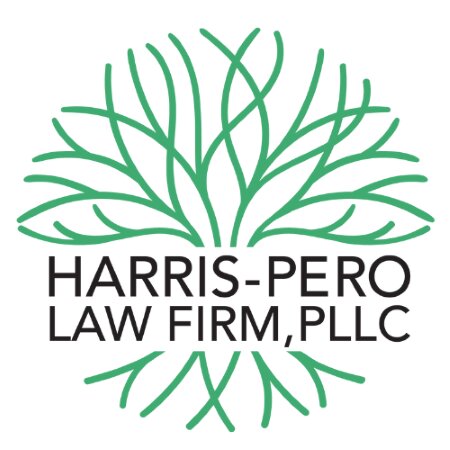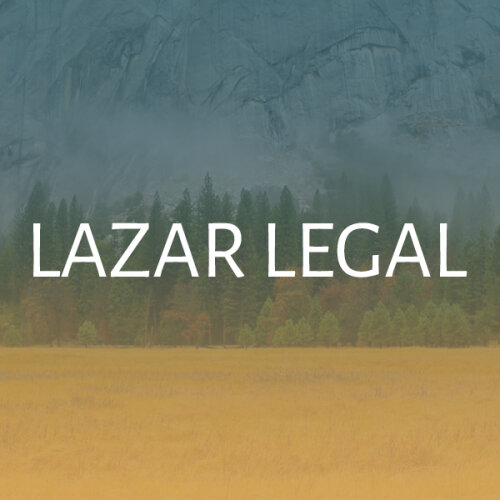Best Elder Abuse Law Lawyers in New York
Share your needs with us, get contacted by law firms.
Free. Takes 2 min.
Or refine your search by selecting a city:
List of the best lawyers in New York, United States
About Elder Abuse Law in New York, United States
Elder abuse law in New York is designed to protect older adults from harm, neglect, and exploitation. Elder abuse can take many forms, including physical, emotional, or sexual abuse, as well as financial exploitation and neglect by caregivers or institutions. The law recognizes that seniors are vulnerable to various kinds of mistreatment, particularly from those they trust or rely upon for care. New York has established specific statutes, protections, and procedures to ensure the rights and wellbeing of elders are safeguarded. These laws permit courts and authorities to intervene and prosecute abusers when necessary, and provide recourse for victims and their families.
Why You May Need a Lawyer
There are many situations where legal help in elder abuse law may be necessary. Family members may suspect a loved one is being harmed or exploited and need guidance to act. Elderly individuals may themselves seek assistance if they feel threatened, manipulated, or harmed by caregivers, relatives, or institutions. Sometimes financial abuse or exploitation becomes apparent when large sums of money are missing or documents have been signed under duress. Legal support is also essential in cases involving disputes over guardianship, conservatorship, or power of attorney, where the rights and best interests of the elder are at stake. A lawyer can help navigate the reporting processes, obtain restraining orders, initiate civil lawsuits, pursue criminal charges, and ensure all available remedies are explored to protect the victim.
Local Laws Overview
New York has enacted laws specifically to address and prevent elder abuse. Key elements include:
- The Social Services Law requires reporting of suspected adult abuse to the appropriate Adult Protective Services (APS) agency.
- Mandatory reporting is not required for most individuals outside of certain settings, but any concerned person can make a report.
- Elder abuse can be prosecuted under criminal statutes relating to assault, endangerment, theft, fraud, forgery, and more.
- Civil remedies may include restraining orders, guardianship applications, or lawsuits for financial recovery.
- There are specific provisions addressing abuse in nursing homes and other institutional settings under the Public Health Law and the Patient Abuse Reporting Law.
- Victims are protected from retaliation for reporting abuse or cooperating with investigations.
New York courts and agencies coordinate to provide protective remedies, including comprehensive investigations and support services for elders at risk.
Frequently Asked Questions
What is considered elder abuse in New York?
Elder abuse encompasses physical, emotional, sexual, or financial harm, as well as neglect by caregivers. Signs can include unexplained injuries, sudden financial changes, poor hygiene, or fearfulness.
Who qualifies as an elder under New York law?
While specific definitions can vary, abuse laws typically protect individuals aged 60 and older, particularly when they are vulnerable or dependent on others for care.
What should I do if I suspect elder abuse?
If someone is in immediate danger, call 911. Otherwise, you can report suspicions to Adult Protective Services in the relevant New York county, or seek legal advice to understand your options.
Is reporting elder abuse confidential?
Reports to APS and related agencies can be made confidentially, and the law protects those making good-faith reports from retaliation or liability.
Can elder abuse occur in institutions like nursing homes?
Yes, abuse can occur in institutional settings. New York law includes special protections and procedures for addressing and investigating abuse in nursing homes, assisted living, and group homes.
What are the potential criminal penalties for elder abuse in New York?
Penalties vary depending on the abuse, and can range from misdemeanor charges to significant felonies, leading to fines, restitution, or imprisonment for the abuser.
What civil remedies are available to elder abuse victims?
Victims may seek restraining orders, financial recovery, changes in guardianship or power of attorney, or other court interventions to protect themselves and reclaim assets.
Can an elder refuse help?
If an elder is mentally competent, they can generally refuse help. However, if they lack capacity or are being coerced, legal avenues exist to appoint a guardian or take protective action.
How does financial abuse happen and what signs should I look for?
Financial abuse may involve unauthorized withdrawals, unusual bank activity, sudden changes in wills or deeds, or the signing of legal documents under undue influence. Look for missing funds or property, or unexplained lifestyle changes.
What is the statute of limitations for bringing an elder abuse case in New York?
The deadlines vary by the type of case. Criminal prosecution and civil suits each have different statutes of limitations. Consulting a lawyer quickly is essential to protect your rights and options.
Additional Resources
Several agencies and organizations in New York offer guidance, support, and intervention for elder abuse cases:
- Adult Protective Services (APS) in your county
- New York State Office for the Aging
- Long Term Care Ombudsman Program
- Elder Abuse Helpline for Concerned Persons
- New York City Department for the Aging
- Legal Aid Societies specializing in seniors' legal issues
- New York State Department of Health for nursing home complaints
These organizations can provide assessment, referrals, emergency services, and legal guidance.
Next Steps
If you suspect elder abuse or are seeking legal help for yourself or a loved one, consider taking the following steps:
- Ensure immediate safety as your top priority, including calling law enforcement when necessary.
- Document any evidence of abuse, such as injuries, financial records, or witness statements.
- Contact Adult Protective Services or relevant agencies to file a formal report if appropriate.
- Consult a lawyer experienced in elder law or elder abuse for confidential advice. Many offer free consultations to discuss your situation.
- Connect with local senior services, support organizations, or advocacy groups for additional assistance or interim care options.
- Act promptly, as time limits can affect your legal options and the safety of the individual at risk.
Seeking help early can make the difference in safeguarding vulnerable elders and obtaining justice. A qualified lawyer can help explain your rights, outline possible legal remedies, and represent your interests throughout the entire process.
Lawzana helps you find the best lawyers and law firms in New York through a curated and pre-screened list of qualified legal professionals. Our platform offers rankings and detailed profiles of attorneys and law firms, allowing you to compare based on practice areas, including Elder Abuse Law, experience, and client feedback.
Each profile includes a description of the firm's areas of practice, client reviews, team members and partners, year of establishment, spoken languages, office locations, contact information, social media presence, and any published articles or resources. Most firms on our platform speak English and are experienced in both local and international legal matters.
Get a quote from top-rated law firms in New York, United States — quickly, securely, and without unnecessary hassle.
Disclaimer:
The information provided on this page is for general informational purposes only and does not constitute legal advice. While we strive to ensure the accuracy and relevance of the content, legal information may change over time, and interpretations of the law can vary. You should always consult with a qualified legal professional for advice specific to your situation.
We disclaim all liability for actions taken or not taken based on the content of this page. If you believe any information is incorrect or outdated, please contact us, and we will review and update it where appropriate.
Browse elder abuse law law firms by city in New York
Refine your search by selecting a city.















